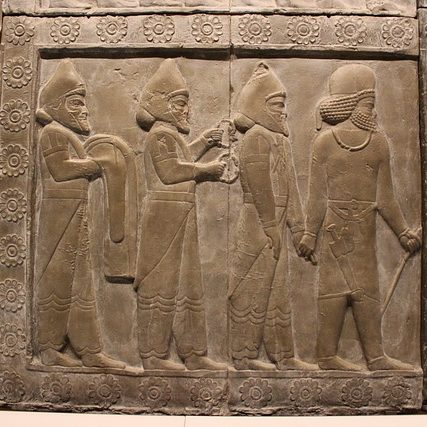
Nestled between the Tigris and Euphrates rivers, in the ancient region of Mesopotamia, a remarkable practice flourished. One that sought divine wisdom through dreams. Mesopotamian Dream Incubation was an integral part of this ancient civilization.
Delve into the ancient world of Mesopotamian dream incubation, explore its rituals, significance and the enduring influence it has had on the cultures that thrived along the Fertile Crescent.
Mesopotamian Dream Incubation: Unlocking the Secrets
Mesopotamians held a profound belief in the power of dreams as a means of communication with the gods and the spirit world.
Dream incubation, also known as ‘temple sleep’, was a practice that involved individuals seeking answers, guidance or divine revelations through their dreams. Temples were dedicated to specific gods and acted as conduits for this sacred experience.
The Ritual Process
The process of Mesopotamian dream incubation began with a series of preparatory rituals designed to invoke the gods favor and ensure the sanctity of the experience.
Pilgrims would purify themselves through cleansing baths and offer prayers and sacrifices to the specific deity associated with the temple. The most common deities associated with dream incubation were Ishtar, the goddess of love and fertility, and Nabu, the god of wisdom and writing.
Following these rites, the individual would spend the night within the sacred confines of the temple, sometimes accompanied by a priest or a diviner. It was believed that the gods would communicate through dreams, offering solutions to personal dilemmas, insights into future events or even instructions for healing rituals.
The Significance of Dreams in Mesopotamian Culture
Dreams held immense significance in Mesopotamian culture. They were considered direct interactions with the divine, capable of shaping individuals’ destinies and influencing society as a whole. Kings and rulers often sought dream oracles to gain legitimacy for their reign or divine guidance in making significant decisions.
Moreover, dreams played a role in medical practices, where dream interpreters offered diagnoses and treatments based on their interpretations of patients’ dreams.
The significance of dreams extended to various aspects of life, including politics, religion, and personal well-being.
Interpreting Dreams: Bridging Mortal and Divine Realms
Upon awakening, the dreamer faced the crucial task of interpreting the dream’s meaning, as dreams were often cryptic and symbolic. Mesopotamian dream interpreters, known as Baru, were skilled in deciphering the divine messages conveyed through dreams. They had a deep understanding of the symbolism and cultural references that provided insights into the dreamer’s life and the divine realm.
Dreams could be warnings of impending danger, advice on personal matters or even messages from deceased loved ones. The process of interpreting dreams required a delicate balance of intuition, spiritual knowledge and cultural context.
Yoga Nidra, the waking sleep, is the ancient healing practice of deep meditation that has been revered for centuries for its powerful effects on the mind, body, and spirit... >> Find Out More <<
Dream Incubation: Temples of Note
Temples dedicated to gods associated with healing and dreams played a crucial role in the dream incubation process.
One of the most notable temples for dream incubation was the E-Meslam Temple in the city of Babylon. This temple was dedicated to the god Marduk, the patron god of Babylon and a powerful figure in the Mesopotamian pantheon. As the king of gods of the Babylonian religion, Marduk’s temple held a central role in dream incubation rituals.
Another prominent temple associated with dream incubation was the Ekur Temple in the ancient city of Nippur, one of the oldest and most important cities in ancient Mesopotamia. The Ekur temple was dedicated to the god Enlil, the supreme god and associated with wind, air, earth and storms. The temple served as a hub for various religious practices, including dream incubation.
Legacy and Influence
The practice of dream incubation in Mesopotamia left an enduring legacy on subsequent civilizations. As the region saw the rise and fall of empires, dream incubation continued to shape the religious practices of later cultures, including the Persians and the Babylonians.
Mesopotamian dream interpretation and divination influenced ancient Greek and Roman cultures. Eventually, these ideas spread across the Mediterranean world and beyond, culminating in the rich tradition of dream analysis and interpretation we still encounter in modern times.
Psychology and Dream Incubation
While dream incubation in ancient cultures was deeply rooted in spiritual and religious beliefs, modern psychology has shed some light on the phenomenon. Contemporary researchers believe that it may have acted as a form of psychotherapy, allowing individuals to explore their subconscious thoughts, emotions, and desires in a safe and ritualistic setting of a Sleep Temple.

Mesopotamian dream incubation stands as a testament to the deep spiritual connection ancient civilizations held with their gods and the cosmos.
Through dreams, they sought answers to life’s complexities and a glimpse into the divine mysteries that governed their existence.
This ancient practice reminds us of the enduring power of dreams, their capacity to transcend time and cultures, and their intrinsic role in shaping our own self realization.
Yoga Nidra is another ancient ‘sleep’ practice that was (and still is) used as a connection to the divine >> Explore our Guided Yoga Nidra: The Waking Sleep Collection.
Including five guided Yoga Nidra meditations with a focus on: Healing, Authenticity, Bliss, Intuition, Insight, Self-Realization, Sleeping and Enhanced Cognitive Functioning, covering a large part of the human experience and potential.


Pingback: The Power of Words: Exploring the Oldest Examples of Trance States Induced by Verbal Suggestions